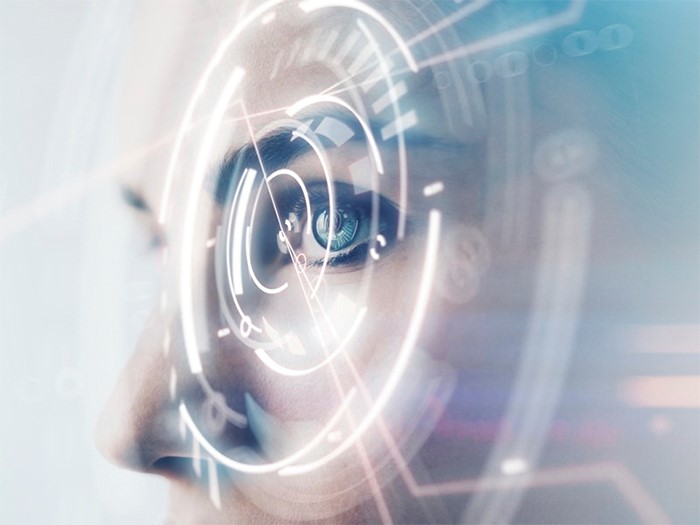The perplexing future of intellectual property
Here are 42 daunting questions about IP and personal ownership
Thomas Frey //December 1, 2016//


The perplexing future of intellectual property
Here are 42 daunting questions about IP and personal ownership
Thomas Frey //December 1, 2016//

(Editor's note: This is the first of two parts.)
At a recent International Copyright Technology Conference in Seoul, Korea, I gave a talk on the “Future of Intellectual Property.” Leading up to the event my research led me to conclude that today’s IP laws, systems and processes are not designed to handle the issues we’ll be facing with technologies next wave.
One example I used came from the highly publicized introduction of A.I. music using Sony’s Flow Machine software where it listened to all of the music recorded by the Beatles and produced a new song, “Daddy’s Car,” in their same style.
Naturally this led to more questions than answers.
- Ten years from now, if consumers are given a choice between A.I. generated music and human composers, which will they choose? Keep in mind A.I. music can be produced as hyper-personalized one-of-a-kind songs.
- Will A.I. generated music be “owned” by the person running the A.I. software?
- How will they establish their claim of “ownership” in an all-digital music environment?
- If the A.I. generated music is based on past music from Fleetwood Mac, Rickie Lee Jones, Beyoncé, or the Beatles, do they deserve royalties for these derivative compositions?
Naturally we’re just getting started with this line of thinking.
Every person is radiating information every hour of every day. Just as the information we mentally emit can be logged and constitute the basis for a copyright or invention, the information we physically emit has value.
Tiny bits of human intelligence go into every online search, transaction and ad click. This information is so valuable that once fed into a preference engine, a full one third of all Amazon sales come from “other recommended” products.
Material information about what we eat, our physical activities and even the people we hang out with can be hugely valuable to insurance companies, online retailers, healthcare providers, and ad placement services. Should the value of our physical information be automatically assigned to us or those who collect the information?
Both personal and intellectual property is getting harder to define, manage and control. It is in this perplexing quandary of rights and ownership that we begin this column.
Intellectual Property and Ownership Issues Bubbling to the Surface
Future IP issues will be focused on ownership, privacy, and freedoms as legal systems attempt to reimagine themselves with entirely new technologies that fit poorly into the existing frameworks.
It’s often been said that quantum computing will give us the ability to rethink the very building blocks of the universe so it’s no wonder that we’ll also have to rethink the rights of creative individuals.
Over the coming years we’ll have to wrestle with the changing nature of “property.”
- Accelerating Timelines – The half-life of most products today can be measured in months not years. In the future it may even be reduced to days and perhaps even hours.
- Digitalization leads to Dematerialization – At what point does less material constitute a new innovation?
- Innovation is being Parsed into Far Smaller Pieces – Innovation today can be as small as a single emoticon, hash tag, or idea. Tomorrow, perhaps a single byte.
- Shrinking Timeframe of Value – In the past, most of the value of a patent was derived in the last few years of its term. With digital technology it tends to come with first mover advantage up until advanced competitors arrive.
- Shift from Ownership to License Holders – In a sharing economy, ownership becomes far less valuable than the right to distribute, the right to sell, and the right use. As example, Uber owns no vehicles, Facebook creates no content, Alibaba has no inventory, Airbnb owns no real estate. Will this growing mirage of ownership require a different kind of license?

Our “property” involves far more than what we can see with our eyes
Rewriting the Rules with Emerging Technology
At the forefront of this transition are a number of emerging technologies, and rest assured, I’m just scratching the surface of challenging issues ahead. The technologies listed below are just a few that come to mind, and yes there will be many more to come.
Driverless Technologies – Within 10 years it will be common to hale a driverless car on our smartphones, much like we do with Uber and Lyft today. But the data surrounding both the transaction and inside-the-car activities have great value.
- Can autonomous car companies sell photos of occupants, announce when famous people will be arriving somewhere, or monitor if riders may be doing something illegal?
- How much data surrounding the trip can car companies collect? (i.e. ages of occupants, music listened to on the trip, hair colors, eye colors, style of clothing, heart rates, and how many times riders use words like “totally” and “sweet”)
- Will riders automatically waive their rights to avoid advertisements? Do they have the right to ride in an ad-free environment?
- With competition coming on many fronts, how much of the “ride experience” will car companies be able to protect? Will they be able to patent, copyright, or trademark the level of privacy, its sound, texture, smell, taste or harmonic vibration of the ride?
Sensor Networks – Over a trillion sensors are predicted to be collecting and distributing information over the next decade.
- Do we have the right to control, monitor, and delete data collected from our personal sensors? (i.e. When we buy sensor-infused clothing in the future, it may already come with a built-in data distribution network that we automatically agree to with the purchase.)
- With more data comes more definition. Will we soon be able to trademark our signature personality traits like our dance moves, hand gestures, ear wiggle, or laugh?
- Once we start tagging valuable objects, vehicles, and devices that we own, how will we prevent our “ownership network” from being hacked, monitored, or outright stolen from us?
- What exactly will ownership mean in an era where physical products are replaced by digital ones and our ability to share, distribute, assign, and license are just a tiny fragment of the options available through our constantly morphing digital rights?
Coming up: The other 30 daunting questions

























